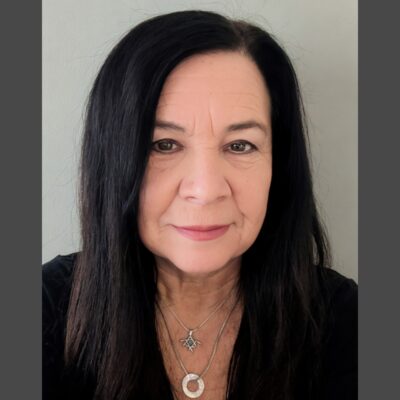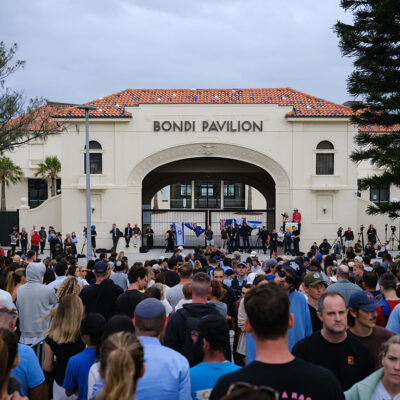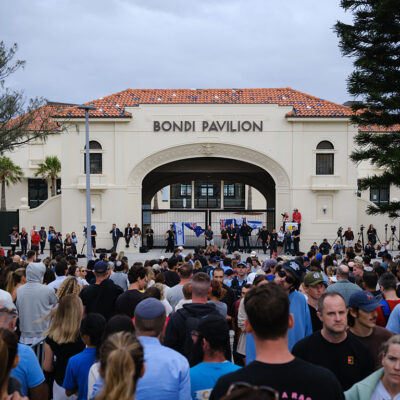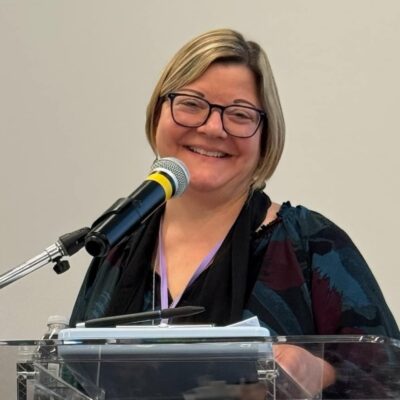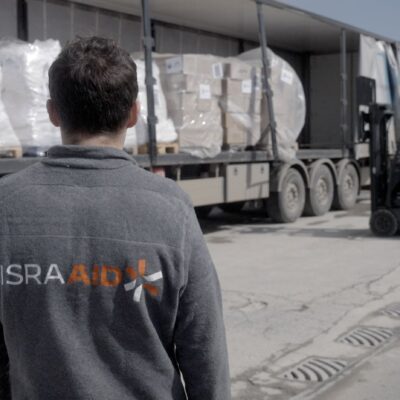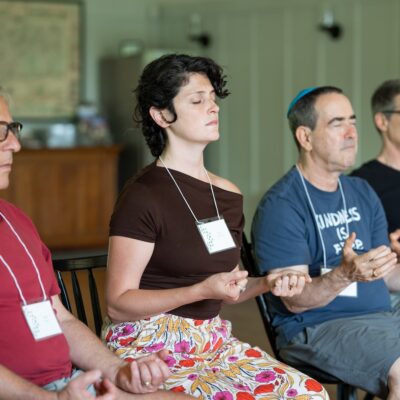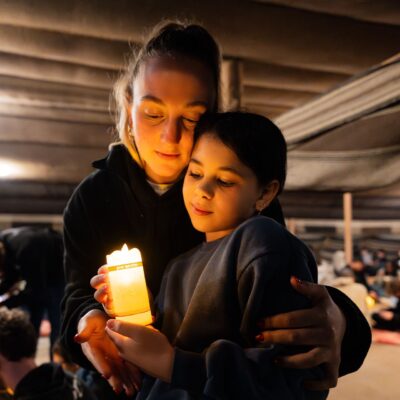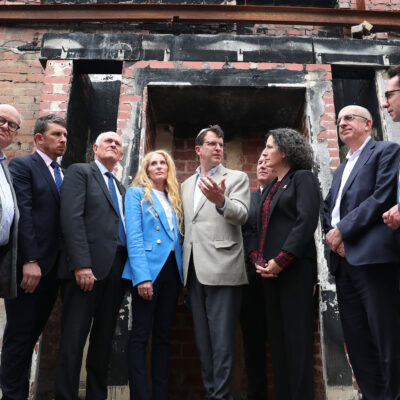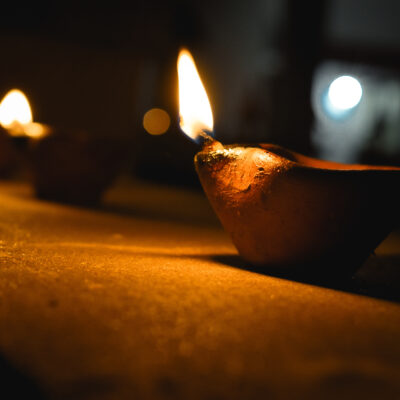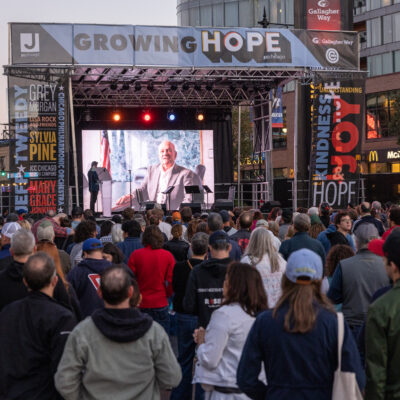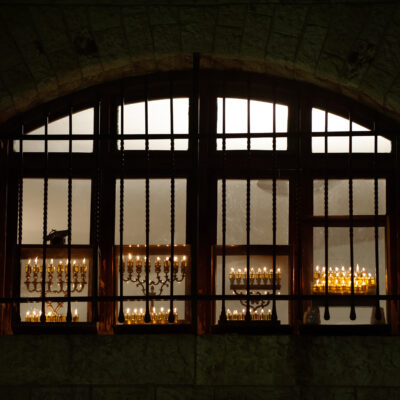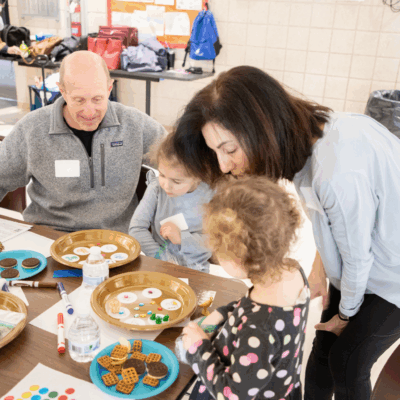helping hand
Jewish and Israeli humanitarian organizations join earthquake relief efforts
Many of the Jewish relief organizations plan to keep staff on the ground in Turkey beyond the rescue-and-recovery period, to assist those affected by the earthquakes

Courtesy
A JDC staffer meets with earthquake survivors
The woman had been trapped for two days under the rubble of an apartment building, and a search-and-rescue unit from United Hatzalah, an EMS service working in coordination with the Israeli government, helped pull her to safety. It was a small ripple of joy in a sea of despair. Because of a shortage of medical personnel in the area, members of the Hatzalah unit also traveled with the woman to the hospital.
IsraAid, the largest humanitarian organization in Israel, has a team of nine people on the ground in two locations in quake-ravaged Turkey, helping with everything from trauma counseling to providing winter clothing as subzero temperatures grip the region.
And the American Jewish Joint Distribution Committee, which has longstanding and deep roots in Eastern Europe, is focused, for now, on attending to people’s most basic needs — hot soup, water, blankets. The organization’s planning for quake survivors’ longer-term needs is still some time off.
In the hours and days since a massive, 7.8-magnitude earthquake struck southern Turkey last Monday, dozens of Jewish and Israeli organizations — along with aid agencies from all over the world — have dispatched teams to help with relief efforts as the death toll climbs above 24,000.
“Israel’s proximity to Turkey is undoubtedly one reason so many of our Israeli partners were able to get to the scene so quickly after the devastating disaster,” Naomi Lipstein, the communications manager for Olam, a network of Jewish and Israeli aid organizations, told eJewishPhilanthropy. Olam, together with the Society for International Development (SID) Israel the Israeli branch of the U.S.-based international aid group, convene a network of humanitarian groups and have collated a list of a dozen organizations that are currently providing aid in the relief effort in Turkey — some of which are directly on the ground — including IsraAid, the JDC and United Hatzalah of Israel. The two umbrella organizations also opened a WhatsApp group with about 60 people either directly working in Turkey or connected to people on the ground, helping to join them with translators, drivers and more. Such a group, Lipstein said, allows for collaboration between organizations. For example, IsraAID arrived in Turkey with United Hatzalah.
But, Lipstein added, Jewish values, beyond basic human obligation, and not simple proximity, drive many OLAM organizations to rush to help. “As Jews, when we are lucky enough to have the capacity to extend our giving beyond our community, we must fulfill our moral responsibility and do exactly that,” she said.
The organizations on the ground fill a variety of roles — United Hatzalah, for example, primarily provides medical and psychological treatment to earthquake survivors, and helps with search-and-rescue efforts. Rachel Zubata, the deputy commander of United Hatzalah’s emergency relief mission to Turkey, called the relief mission “a beacon of unity, with the sole purpose of providing aid to those in need.”
Though United Hatzalah is Israel-based, the nonprofit often assists with international disasters. Zubata, for example, helped relocate thousands of Ukrainian refugees to Israel in 2022.
In Turkey, the group’s efforts are much needed. The rescue of the trapped woman, Zubata said, “is just one example that highlighted in my eyes the importance of our team’s presence and cooperation with other teams at the disaster sites,” (According to a United Hatzalah statement on Sunday, the nonprofit’s search-and-rescue effort in southern Turkey was abruptly halted due to what was described as a “significant security threat.” A plane donated by Dr. Miriam Adelson flew the team back to Israel, according to the statement.)
Sheba Medical Center, the largest medical center in Israel, is another Israel-based organization that has dispatched teams to provide medical humanitarian relief, recently operating in Ukraine and Kenya. In Turkey, there are around eight medical reserve officers assisting in the Israeli Defense Force’s humanitarian effort — in the next month, the IDF plans to rotate out and Sheba will begin running the Israeli humanitarian operation, according to Yoel Hareven, head of Sheba Global.
Brian Abrahams, the CEO of American Friends of Sheba Medical Center — the fundraising arm of Sheba Medical Center — noted that Sheba’s sees its “mandate in the world” as being part of humanitarian relief efforts. This mandate, he added, has only increased over the past few years due to the coronavirus pandemic, war, and an influx of natural disasters.
JDC, a Jewish humanitarian organization, has worked specifically with Turkey’s Jewish community and population more broadly to assist with previous earthquake and other disaster responses. In response to last week’s catastrophe, they immediately sent a team to the disaster zone to help distribute blankets, food, and direct survivors to shelter.
Leora Wine, JDC’s director of disaster response, arrived in Turkey 33 hours after the earthquake initially struck. The initial response, she said, is focused on attending to people’s most basic needs — the “bottom of the bottom” of the Maslow pyramid — and making sure that people afraid to sleep in their homes have hot soup, water, blankets and a general feeling of safety. She noted that these efforts are often communal and not just relegated to foreign humanitarian organizations— everyone who is able to help does what they can.
But JDC also focuses on long-term needs, making sure that it partners with local organizations so they can build capacity to sustain themselves long-term and prepare for the next disaster. In 2019, for example, the group worked with survivors of Hurricane Dorian, which devastated the Bahamas, to help them develop hydroponic food techniques and other forms of disaster preparedness. Wine noted that these on-the-ground efforts are especially important since those with the means to leave often do so, meaning that the ones still there are the ones who need the most assistance.
“When there’s a disaster, everybody comes at the beginning,” Wine added. “Look at those who stick around. That’s what’s important to know.”
IsraAid has worked in over 60 countries. Similar to JDC, they focus both on immediate relief and long-term recovery and resilience. According to Yotam Polizer, the group’s CEO, the teams he dispatches will often spend five to seven years in one location, rather than just a few months. In Turkey, the organization has a team of nine people on the ground in two different locations, which includes trauma specialists, water engineers, and people with operations and logistics experience who are helping to provide immediate relief in the form of heating and winter clothing. At the same time, they are training local people to build capacity while also partnering with local organizations to help make the work sustainable.
“This crisis in terms of Turkey, in terms of climate disaster, is the worst we’ve seen in years,” Polizer said, noting the widespread disaster and inaccessibility of many places. “People go to areas more accessible or highlighted on mainstream media, but if you go two miles down the road, there’s a small village equally devastated or more that has received zero support.”
Even so, Polizer also noted the “beautiful side of these terrible tragedies,” which is the opportunity to build bridges and see the good in humanity.
“What I know is that it’s very hard, very cold, and you see bodies all over. Really all over the streets, everywhere. There’s this feeling of helplessness in the face of something so big. At the same time,” he added, “you see all the good in mankind. See how so many people support each other, how the whole world is coming together regardless of religious politics to support people in crisis.”

 Add EJP on Google
Add EJP on Google




